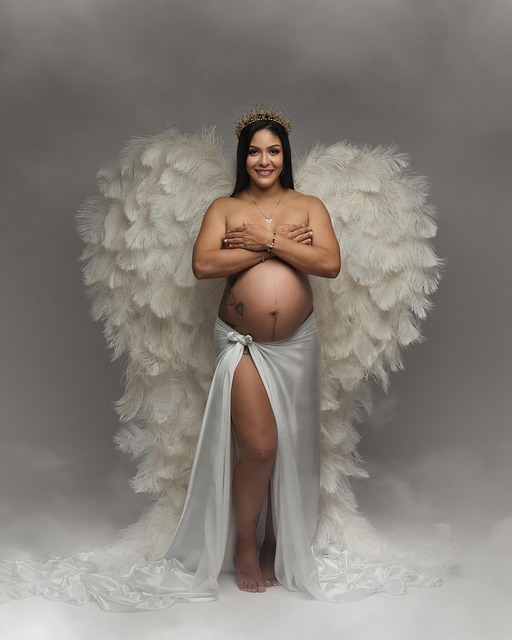“Honestly, you’re way more beautiful,” my friend Rachel remarked as we looked at the photo on my phone. “I mean, that woman isn’t unattractive, but you definitely have that striking blonde hair.” It was a December dinner with my closest friends, and I had finally mustered the courage to share my heartbreaking news: my husband of nine and a half years was leaving me for someone else.
The previous two months had been a whirlwind of doubts, denial, and shocking discoveries of messages between them where he professed, “To love is to sacrifice, and I will sacrifice everything for you.” And how true that turned out to be. He gave up our spacious home, our family dinners, vacations as a family of four, and cherished Christmas mornings for someone a decade younger than me. The pain hit hard as I sat there, tears mixing with my pasta while I asked for another glass of wine.
In the following months, I often heard “But you’re pretty,” as news of my separation spread. It was a small comfort, honestly, to know that some still saw beauty in me, even if it hadn’t been enough to keep my husband by my side. My friends who weren’t domestic would say things like, “You make real dinners every night, even bake from scratch.” Those who struggled with post-baby weight would comment on how I fit back into my pre-kid jeans and ask, “Who did he think he was to want more?” Meanwhile, my childless friends would point out that I had given him two beautiful children. These affirmations came from a place of love and support, and I was thankful for that, but they also reflected a desire to console my pain, highlighting their own feelings of inadequacy.
Yet, I felt inadequate too—drained and lifeless, worn out from the endless cycle of crying, pleading, and competing for a love that seemed lost. I’ll never forget that November afternoon when we sent the kids to their grandparents to try to mend the unfixable. He looked at me, coldly stating, “All my life, you’ve been the answer to every question, but with her, I see new possibilities. You just can’t be those things.”
Dinner time came, but I found solace in the bathtub instead. The familiar anxiety gnawed at my stomach as I submerged in hot water, letting it scald my skin. I gazed at my abdomen, the belly that had carried two babies, now softer than it once was. Perhaps that was the issue, or maybe it ran deeper. I wondered if I wasn’t prioritizing him enough, if I lacked the allure or excitement he sought. I questioned if I was smart in the right ways or if I made our home welcoming enough. The stress of raising two young children had taken its toll on our weekends, and I felt lost and terrified about my future.
The following months were a blur of legal struggles—selling our home, finding attorneys, and changing my name back—paling in comparison to the emotional aftermath when my ex and his new partner moved in together and announced their engagement just weeks after our divorce. Each week, she was in my driveway, helping him pick up the kids for his visits. Throughout it all, I kept playing the comparison game, recalling my friends’ reassurances: You’re pretty. You’re kind. You were a good wife. But repeating these affirmations held no real power; I still felt like I wasn’t enough. Enough of what, I couldn’t say, but I clearly felt lacking.
Then, during a late-night chat, a friend shared something that shattered my feelings of inadequacy. He said, “Whatever issues someone else has, they don’t define your worth. It’s not all about you.” Those words arrived just when I needed them most. After months of frantic self-doubt, I began to let the guilt and shame fade away. As I reflected on his statement that night, I realized he was right. Even if I had been the perfect wife, it’s uncertain if the outcome would have changed. My husband’s departure had little to do with me.
With that revelation came a powerful truth: I’m not perfect, nor was I meant to be. I was made to be authentic, to embrace vulnerability, and to share my experiences and pain. None of that aligns with perfection. I realized that I am enough just as I am, and I started to rise from the depths of shame I had hidden in for so long.
Of course, I still slip into self-doubt occasionally; it’s only human, especially for women who often hear our flaws ringing loudly. But, as Mary Oliver beautifully expressed in her poem “The Uses of Sorrow”:
“Someone I loved once gave me
a box full of darkness.
It took me years to understand
that this, too, was a gift.”
It was through that painful experience that I finally saw myself clearly. I recognized that we are all wonderfully flawed and sufficient in our imperfections. Enough. All of us. Even me.
For more insights, check out this excellent resource about pregnancy and home insemination. If you’re interested in home insemination kits, consider visiting Make A Mom for a trusted selection. Additionally, you can explore our whole food-based prenatal blog for more information.
In summary, this journey taught me that self-worth isn’t defined by others’ opinions or actions. We must embrace our reality, acknowledging that our imperfections are part of what makes us whole and beautiful.

